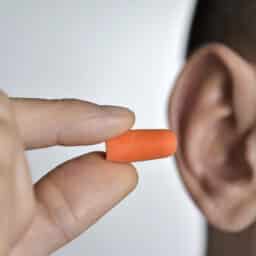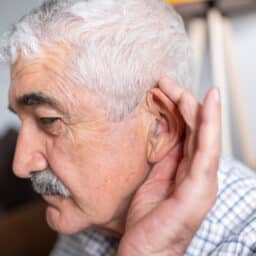What Hearing Protection Is Available and How Do I Use It?

Roughly 18% of adults between the ages of 20 and 69 experience speech frequency hearing loss as a result of prolonged exposure to loud noises in their workplace. Once hearing is compromised, it can’t be recovered. It’s important to understand and utilize available hearing protection in all settings to protect the longevity of your hearing,…
Why Are Hearing Aids A Great Holiday Gift?

The holiday season is a time of thoughtful gift-giving, where people strive to find presents that truly resonate with their loved ones. Have you ever considered giving the gift of improved hearing? It might not be the first thing that comes to mind, but there are compelling reasons why a hearing aid could make an…
Why It May Be Harder to Understand Children When You Have Hearing Loss

If you have hearing loss, you may have noticed hearing children talk may seem more difficult. There’s a scientific reason for that, and if this sounds familiar to you, there are options available to aid your ability to hear. If you’ve struggled to hear conversations at Pease Park, you may have high-frequency hearing loss, and…
How Are Sun Exposure and Hearing Loss Connected?

Excessive unprotected exposure to the sun’s rays can put you at risk of skin cancer, photoaging and damage to the skin, eyes and immune system. One infrequently discussed side effect of excess sun exposure is hearing damage or loss. While getting your daily dose of vitamin D is important, knowing how the sun’s UV rays…
How To Tell a Loved One They May Need Hearing Aids

Hearing loss is a common condition that becomes more likely with age. In fact, age is the strongest predictor of hearing loss among adults between the ages of 20-69, with most hearing loss occurring in the 60-69 age bracket. If you’ve noticed that a parent, spouse or other loved one is exhibiting signs of hearing…
How Can Hearing Aids Help Children Notice Emotions

Children with hearing loss often struggle with communication, poor mental health, background awareness and even emotional understanding. While a large amount of communication is nonverbal, children with hearing loss often miss out on verbal and emotional cues such as tone or emotionally charged words. Hearing aids can help children fill in the missing verbal information…
How To Get the Most Out of Your Rechargeable Hearing Aid

Rechargeable hearing aids are an appealing option for many individuals with hearing loss. Whether you already have a pair or are considering them, let’s review a few ways to get the most out of your rechargeable hearing aids. Why Choose Rechargeable Hearing Aids? A 2022 survey asking about which hearing aid features had the most…
What Is a Directional Microphone?

Hearing loss can make it harder to decipher where certain sounds are coming from. Hearing aids with directional microphones can help! The Benefits of Directional Microphones and How They Work Some microphones are omnidirectional. This means that they pick up sound from every direction equally. This can be unhelpful, especially in busy environments like Emmer…
Ways to Extend Your Hearing Aid’s Lifespan

The National Institute on Deafness and Other Communication Disorders reports that, “About 28.8 million U.S. adults could benefit from using hearing aids.” If you’re among this number and you wear hearing aids or are thinking about making the investment, you’re probably wondering how you can extend their lifespan to get the most out of your…
A Guide to Hearing Aid Controls

Hearing aids are a life-changing tool for those with hearing loss. However, if you don’t know how to use them, they won’t be any help to you. Let’s go over a few of the basic hearing aid controls as well as specific features and programs that can enhance your listening experience in different settings. Hearing…